December 19, 2024
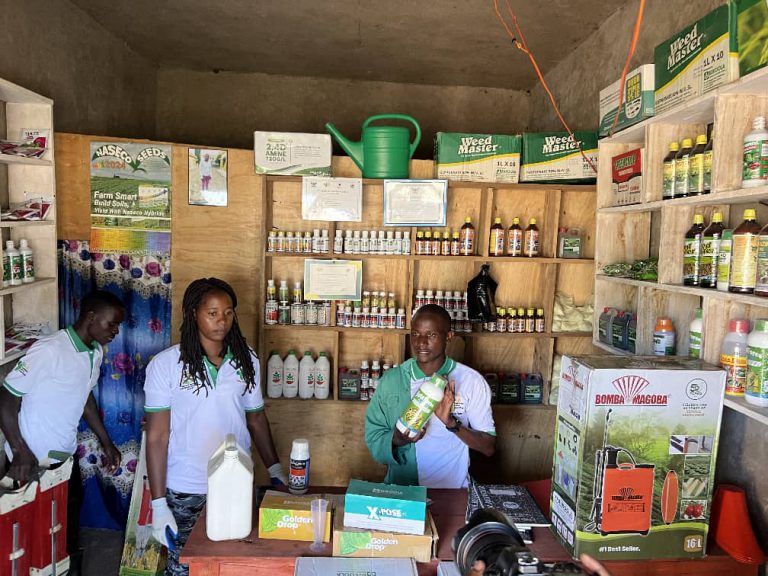
After earning his bachelor’s degree in agriculture, Michael Asaba volunteered at NARO-MbaZARDI, a public agricultural research institution, for a while before joining SAA-Uganda as an extension worker attached to the Kyendagra Area Cooperative of the One Stop Centre Association (OSCA), through which he has transformed both Kitagewenda community and his own life.
Driven by a passion for community transformation, Asaba noted gaps in access to quality inputs and farming techniques in Kitagwenda, which were promptly addressed by establishing an input shop. This initiative, alongside his extension work, improved access to essential agricultural resources and production knowledge. His journey took a significant leap when he became a Commercial Community-Based Facilitator (CCBF), receiving advanced training from SAA on modern farming tools, agro-input applications, and best practices.
From this training, Asaba introduced tools like jab planters, which streamline planting by digging, planting, and covering seeds in one motion, enhancing efficiency and crop yields. Between August and October 2024, he provided planting services to 13 farmers across 27 acres, reducing labor and boosting productivity. Farmer John Bangirana remarked, “Asaba has truly changed the way we farm.”
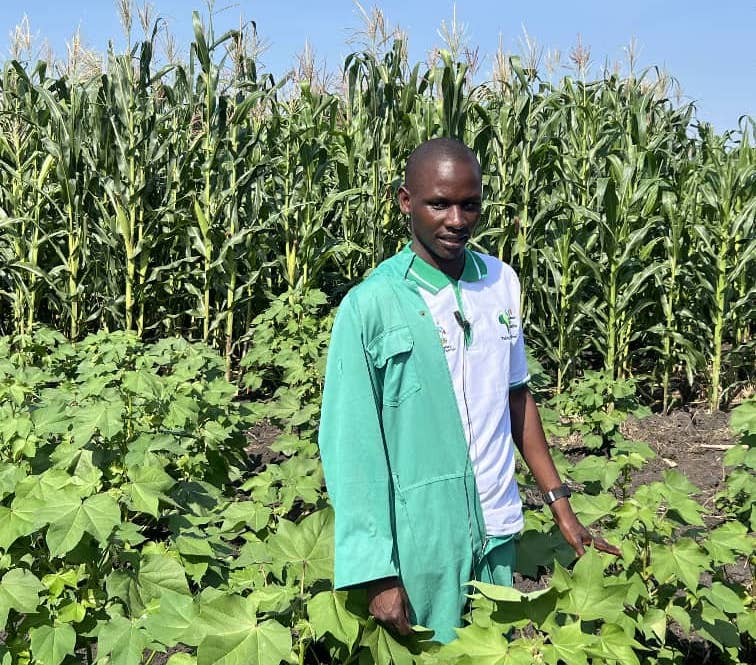
Asaba’s input shop has flourished too, recording USD1,017.4 in sales from the last two months alone, while giving farmers consistent access to quality products. He also maintains demonstration fields and conducts training sessions, fostering the adoption of modern practices. “Seeing results convinces farmers of the power of change,” he explained.
During the 2024 second season, Asaba worked with 253 farmers, helping cultivate over 33 acres and providing planting and spraying services. “Every improved harvest is a win for us all,” he said.
For the full story: https://www.saa-safe.
Get notified when new stories are available.
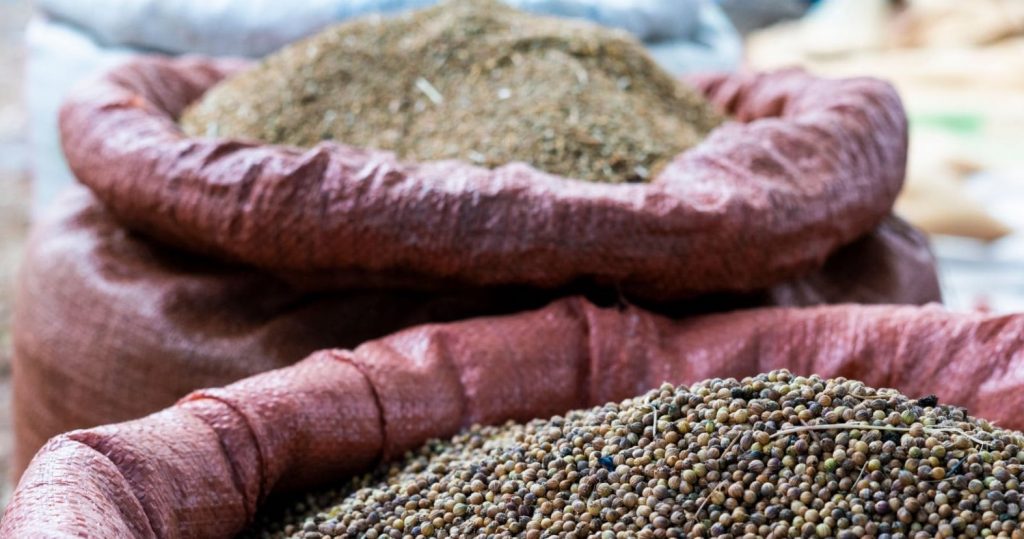
Last year, SAA conducted a demonstration in Mali to illustrate to farmers the effectiveness of hermetic storage. We established demonstration tests in farmers’ homes withing the village of Doumbadjila, where, for nine months, starting March 5, 2021 to December 8, 2021, equal quantities of maize and sorghum were stored in different containers including plastic silos, PICS bags, recycled plastic containers. Ordinary polypropylene (PPP) bags were used as controls for the test. The grains from the different containers were visually assessed for quality at the end of the test period by 179 participants, including 177 farmers (112 men; 65 women) and two extension agents (both male). The grains in the hermetic storage containers were found to be in perfect condition, free of insect-pest damage, and had no color or odor change. These qualities made them good for domestic consumption and seed production, as well as for sale in markets, where they fetched higher prices. Meanwhile, those in the PPP bags were full of insects and were generally in bad condition. The test confirmed that farmers using hermetic storage could make more savings by eliminating the costs incurred in the purchase of pesticides, which are mandatory when using non-hermetic storage techniques. Hermetic storage was also shown to be superior to other storage techniques as it left the products free of chemicals and thus safe for consumption.
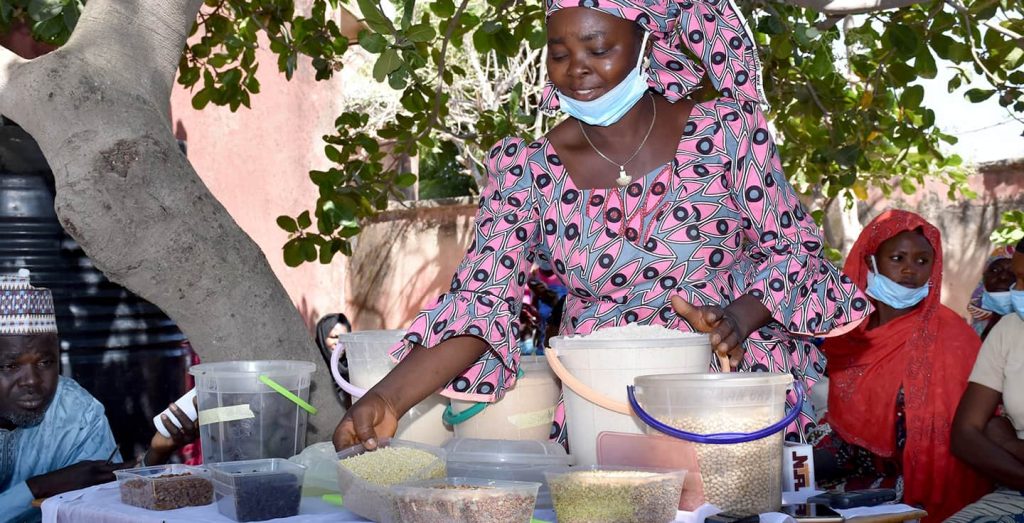
SAA trained 125 frontline extension agents including eight community health extension workers on the usage of nutrient-dense crops in creating balanced diets and improving food diversity options. The trained agents cascaded the knowledge to 8,635 farmers (6,928 male; 1,707 female) in the Nasarawa, Jigawa, Gombe and Kano states of Nigeria. The programme was part of SAA’s strategy of using Nutrition Sensitive Agriculture to promote the consumption of adequate local balanced diets that improve the Household Dietary Diversity Score (HHDS) by reducing the stunting rate for children under five years of age. The nutrition awareness program encouraged farmers to consume the diverse local foods, in addition to embracing hygiene and physical exercise for good health. It also addressed the importance of breast and complementary feeding for babies as part of the approaches for malnutrition reduction in the targeted communities.
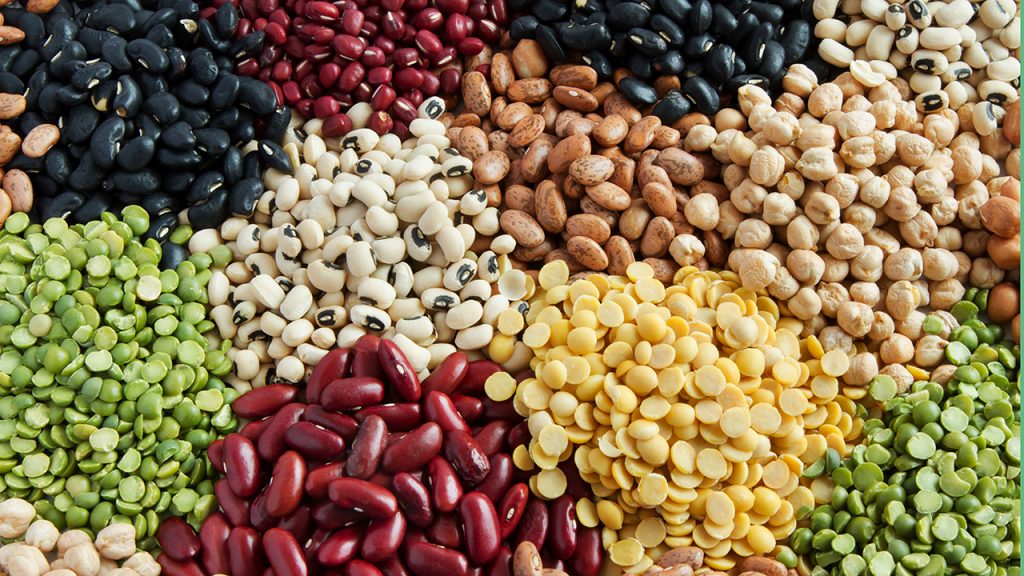
In a bid to combat Vitamin A and Iron deficiency in Uganda, SAA introduced farmers in Lutete, a village in the country’s Mubende District, to nutrient-dense, iron-reach beans, and orange-fleshed sweet potatoes. Together with HarvestPlus, SAA trained the leaders of the Nkobazambogo farmers group on how to grow, process and preserve the super beans and sweet potatoes. The training also covered meal planning and preparation, with a focus on child-feeding and caregiving. The bio-fortified foods were especially recommended for children and women of reproductive age, like Nkobazambogo chairperson, Aisha Nakibule, who attested to their effectiveness. “It is rare to find malnourished children in our village; four years ago, it was a different story,” she explained.
Ms. Nakibule noted that the bio-fortified beans are tasty, take a short time to cook and can be profitably cultivated.
“Last season, we harvested slightly over 11 bags of beans out of which we sold nine at UGX1.5m (USD416), shared two amongst members, and retained 50kg for planting,” she said. The project was part of SAA’s strategy to support smallholder farmers in fighting malnutrition through nutrition-sensitive agriculture. This is against data from the Global Nutrition Report 2021 showing that 28.9% of children under five years of age in Uganda are stunted, 3.5% are wasting away, and 32.8% of women of reproductive age are anemic. The report also showed that 28% of Uganda’s preschool children suffer from vitamin A deficiency.

Since 2020, SAA has been promoting permagardening techniques in Ethiopia reaching a significant number of households, including 84 in Seboba Wesherbi, a village in the Raya Boda kebele of the Ana Sora woreda in the Oromia region. In 2021, SAA trained 28 farmers in Seboba Wesherbi, demonstrating how perma-gardening conserves water and improves soil fertility, allowing for easy root growth and, ultimately, higher crop yields. Furthermore, the training introduced participants to new vegetables like Swiss chard, which has a high biomass and can be harvested continuously. Following the training, 51 households established permagardens in their backyards; the additional 23 being those that did not attend the workshop but learned from their trained neighbours. Out of 51 perma-gardens, 35 were excellently established, allowing their owners to save USD 4 -6 USD per week that would have, otherwise, been spent on vegetable purchases. The new permagardens converted idle backyard plots into functional units that produce fresh and healthy vegetables, improving the household nutritional status in the region, and enabling farmers to generate additional income, with some households generating new revenue streams of up to USD100 over five months from vegetable sales.

Last year, SAA conducted a demonstration in Mali to illustrate to farmers the effectiveness of hermetic storage. We established demonstration tests in farmers’ homes withing the village of Doumbadjila, where, for nine months, starting March 5, 2021 to December 8, 2021, equal quantities of maize and sorghum were stored in different containers including plastic silos, PICS bags, recycled plastic containers. Ordinary polypropylene (PPP) bags were used as controls for the test. The grains from the different containers were visually assessed for quality at the end of the test period by 179 participants, including 177 farmers (112 men; 65 women) and two extension agents (both male). The grains in the hermetic storage containers were found to be in perfect condition, free of insect-pest damage, and had no color or odor change. These qualities made them good for domestic consumption and seed production, as well as for sale in markets, where they fetched higher prices. Meanwhile, those in the PPP bags were full of insects and were generally in bad condition. The test confirmed that farmers using hermetic storage could make more savings by eliminating the costs incurred in the purchase of pesticides, which are mandatory when using non-hermetic storage techniques. Hermetic storage was also shown to be superior to other storage techniques as it left the products free of chemicals and thus safe for consumption.

SAA trained 125 frontline extension agents including eight community health extension workers on the usage of nutrient-dense crops in creating balanced diets and improving food diversity options. The trained agents cascaded the knowledge to 8,635 farmers (6,928 male; 1,707 female) in the Nasarawa, Jigawa, Gombe and Kano states of Nigeria. The programme was part of SAA’s strategy of using Nutrition Sensitive Agriculture to promote the consumption of adequate local balanced diets that improve the Household Dietary Diversity Score (HHDS) by reducing the stunting rate for children under five years of age. The nutrition awareness program encouraged farmers to consume the diverse local foods, in addition to embracing hygiene and physical exercise for good health. It also addressed the importance of breast and complementary feeding for babies as part of the approaches for malnutrition reduction in the targeted communities.

In a bid to combat Vitamin A and Iron deficiency in Uganda, SAA introduced farmers in Lutete, a village in the country’s Mubende District, to nutrient-dense, iron-reach beans, and orange-fleshed sweet potatoes. Together with HarvestPlus, SAA trained the leaders of the Nkobazambogo farmers group on how to grow, process and preserve the super beans and sweet potatoes. The training also covered meal planning and preparation, with a focus on child-feeding and caregiving. The bio-fortified foods were especially recommended for children and women of reproductive age, like Nkobazambogo chairperson, Aisha Nakibule, who attested to their effectiveness. “It is rare to find malnourished children in our village; four years ago, it was a different story,” she explained.
Ms. Nakibule noted that the bio-fortified beans are tasty, take a short time to cook and can be profitably cultivated.
“Last season, we harvested slightly over 11 bags of beans out of which we sold nine at UGX1.5m (USD416), shared two amongst members, and retained 50kg for planting,” she said. The project was part of SAA’s strategy to support smallholder farmers in fighting malnutrition through nutrition-sensitive agriculture. This is against data from the Global Nutrition Report 2021 showing that 28.9% of children under five years of age in Uganda are stunted, 3.5% are wasting away, and 32.8% of women of reproductive age are anemic. The report also showed that 28% of Uganda’s preschool children suffer from vitamin A deficiency.

Since 2020, SAA has been promoting permagardening techniques in Ethiopia reaching a significant number of households, including 84 in Seboba Wesherbi, a village in the Raya Boda kebele of the Ana Sora woreda in the Oromia region. In 2021, SAA trained 28 farmers in Seboba Wesherbi, demonstrating how perma-gardening conserves water and improves soil fertility, allowing for easy root growth and, ultimately, higher crop yields. Furthermore, the training introduced participants to new vegetables like Swiss chard, which has a high biomass and can be harvested continuously. Following the training, 51 households established permagardens in their backyards; the additional 23 being those that did not attend the workshop but learned from their trained neighbours. Out of 51 perma-gardens, 35 were excellently established, allowing their owners to save USD 4 -6 USD per week that would have, otherwise, been spent on vegetable purchases. The new permagardens converted idle backyard plots into functional units that produce fresh and healthy vegetables, improving the household nutritional status in the region, and enabling farmers to generate additional income, with some households generating new revenue streams of up to USD100 over five months from vegetable sales.